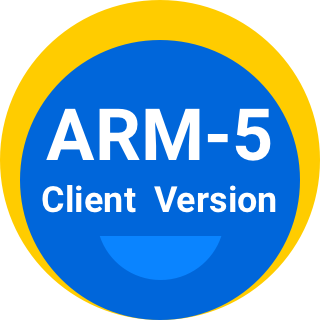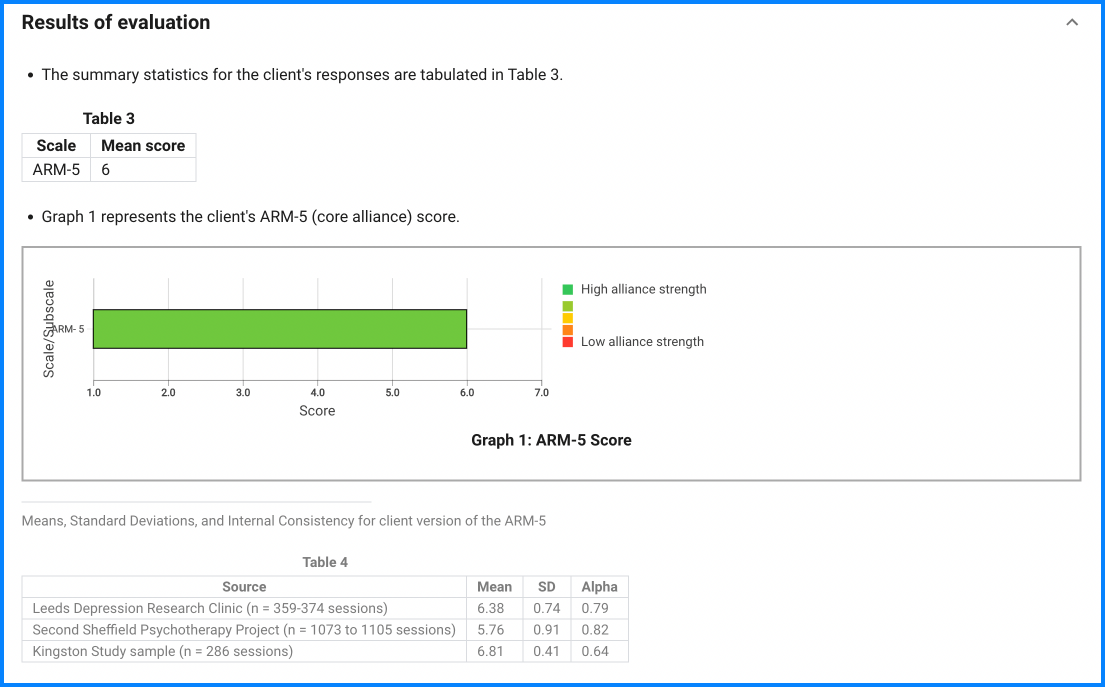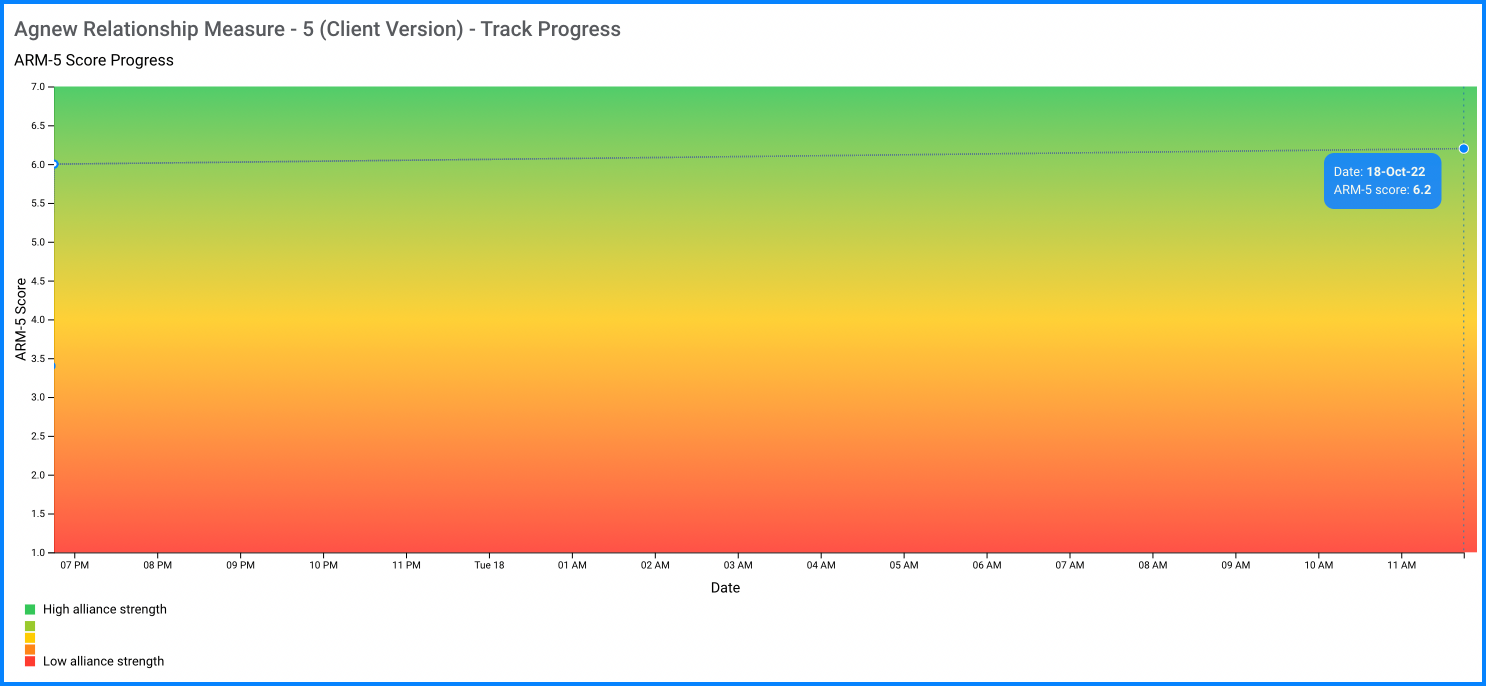Since the questionnaire relies on client self-report, all responses should be verified by the practitioner, and a definitive analysis is made taking into account how well the client understood the questionnaire, as well as other relevant information from the client. As is true of any self-report instrument, respondents can consciously distort their response to the scale if they are motivated to do so.
ARM-5 was intended as a very short index of the core alliance construct that could be used to track alliance in busy practice settings as a clinical decision tool. For example, feedback to participants on the status of their alliance might signaling alliance ruptures in time to facilitate their repair, just as feedback on clients’ progress on symptom intensity measures results in improved outcomes, particularly for clients who have a poor initial response to treatment .




